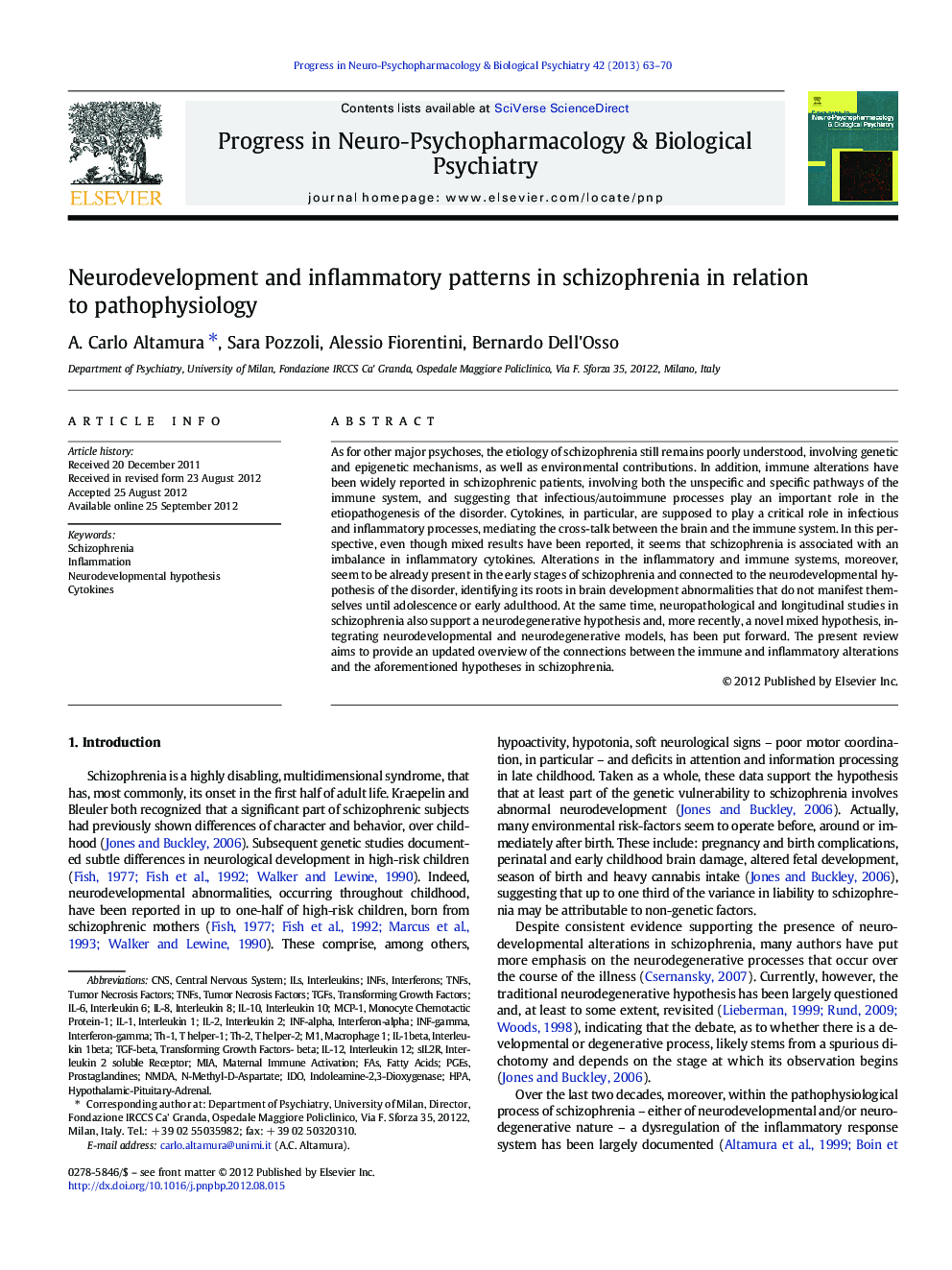| Article ID | Journal | Published Year | Pages | File Type |
|---|---|---|---|---|
| 2564924 | Progress in Neuro-Psychopharmacology and Biological Psychiatry | 2013 | 8 Pages |
As for other major psychoses, the etiology of schizophrenia still remains poorly understood, involving genetic and epigenetic mechanisms, as well as environmental contributions. In addition, immune alterations have been widely reported in schizophrenic patients, involving both the unspecific and specific pathways of the immune system, and suggesting that infectious/autoimmune processes play an important role in the etiopathogenesis of the disorder. Cytokines, in particular, are supposed to play a critical role in infectious and inflammatory processes, mediating the cross-talk between the brain and the immune system. In this perspective, even though mixed results have been reported, it seems that schizophrenia is associated with an imbalance in inflammatory cytokines. Alterations in the inflammatory and immune systems, moreover, seem to be already present in the early stages of schizophrenia and connected to the neurodevelopmental hypothesis of the disorder, identifying its roots in brain development abnormalities that do not manifest themselves until adolescence or early adulthood. At the same time, neuropathological and longitudinal studies in schizophrenia also support a neurodegenerative hypothesis and, more recently, a novel mixed hypothesis, integrating neurodevelopmental and neurodegenerative models, has been put forward. The present review aims to provide an updated overview of the connections between the immune and inflammatory alterations and the aforementioned hypotheses in schizophrenia.
► Immune inflammatory alterations have been widely reported in schizophrenics. ► Such alterations seem to be already present in the early stages of schizophrenia. ► They are consistent with the neurodevelopmental hypothesis of schizophrenia. ► Such hypothesis identifies the roots of the illness in brain development. ► This leads to brain abnormalities that do not manifest until adolescence or early adulthood.
